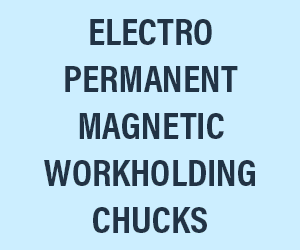2012 State of the Industry: Measurement and Inspection
Forecast: Disruptive non-contact measurement technologies will continue to grow to support mass customization in job shops for strong opportunities in anything formed and fabricated, particularly in the automotive, commercial aircraft and energy markets.
Posted: January 11, 2012
Forecast: Disruptive non-contact measurement technologies will continue to grow to support mass customization in job shops for strong opportunities in anything formed and fabricated, particularly in the automotive, commercial aircraft and energy markets.
 Angus Taylor
Angus Taylor
President and CEO, Hexagon Metrology, Inc.
Manufacturer of bridge, horizontal arm, gantry and portable arm coordinate measuring machines, gages, tools, laser trackers, machine tool probing, scanners and other precision instruments for industrial dimensional metrology applications.
CURRENT STATE OF BUSINESS
Currently the state of business is strong. We are seeing increased activity in all the market sectors we serve, and many are exhibiting substantially increased activity over the prior year, particularly automotive. Other strong segments include commercial aircraft, energy, and anything related to forming and fabricating.
We are also seeing strong demand across all of our product segments from automated systems to portable metrology. Since we serve such a broad cross section of the manufacturing economy – over 100 different NAICS codes – this is good news for the manufacturing sector in general.
MAJOR TRENDS
We have seen many of our customers thrive in a down market because they began to look at what they did differently. A job shop is no longer a job shop – they are a specialty manufacturer of customized parts. Companies that were tied to one industry or one type of product struggled, while those that saw the connections between their capabilities and the needs of many diverse industries thrived. This is why we have seen certain industries, such as aerospace and medical parts, geographically diversify from their traditional geographic locations to more of a nationwide supplier base as the “best of the best” shops realized what their strengths were.
Manufacturing is becoming more and more computerized and more and more integrated. The companies that best master blending efficient manufacturing techniques and effective use of the software tools available to them will win.
Mass customization is possible with the right application of the available manufacturing tools and systems. Many of the products we offer incorporate the ability to see upstream and downstream in the manufacturing process to ensure that all the stakeholders are using the correct information. More and more integration of these kinds of tools is inevitable, and this is a critical area of our software development efforts.
CRITICAL ISSUES
As we come out of a recession that hit manufacturing hard, even though manufacturing was not the cause of it, we again do not see the issues of the manufacturing sector being taken seriously by government officials. The tax incentives for capital equipment purchases at the time of this writing are set to expire at the end of 2011. Access to capital is still tight, particularly for small businesses.
Despite high unemployment, the manufacturing sector is actually having a difficult time filling many openings, as the jobs that are being created in manufacturing now require a high-skill workforce familiar with computerized manufacturing and machine programming.
In spite of all of this, and how the mass media inevitably focuses of every piece of negative news, the manufacturing sector is remarkably robust, with a net addition of jobs in 2011. The macroeconomic conditions continue to suggest that manufacturing output will increase in 2012.
Our government needs to recognize that many companies with a global presence are making choices about where to manufacture, source, import and export products based on government policies. Policies that encourage job creation, deployment and reinvestment of capital, R&D investment, and exporting will benefit whatever countries choose to deploy them to attract and retain a manufacturing base.
Government needs to identify the education and training requirements of the manufacturing sector and create incentives that will allow workers to be trained for the jobs that actually exist today. The days when someone apprenticed in manufacturing are long gone, but unfortunately this was often the best way to deliver workers with the skills that manufacturers really needed.
Technical programs in traditional educational settings are not always the best substitute, as they often lag behind real-world needs and technology. Incentives to create public-private partnerships for job training programs and internships is one way to get the workforce the skills they need without employers bearing the risk of hiring unskilled workers.
Hexagon Metrology, Inc., 250 Circuit Drive, North Kingstown, RI 02852, 800-274-9433, Fax: 401-886-2727, www.hexagonmetrology.us.
 Jay Freeland
Jay Freeland
President and CEO, FARO Technologies, Inc.
Manufacturer of industrial measurement instrumentation and devices, including laser scanners and trackers, gages, 3D imagers and software for inspection, alignment, surface modeling asset management and documentation.
CURRENT STATE OF BUSINESS
The industry is fairly strong. We find that our customers have sufficient cash on hand, but are careful to spend it only on technologies that create efficiencies and really improve their operations. Our customers are consistently telling us that during the downturn, they were forced to eliminate an entire tier of workers and will likely not add them back for the foreseeable future. They now have positive cash flow to spend and will do so only to improve the productivity of their current workforce and the quality of their products.
We find that the same is true for manufacturers across the board – we don’t see any specific sectors bearing more of the burden than others. Barring a major economic downturn in the Eurozone or elsewhere, we anticipate continued strength in 2012.
MAJOR TRENDS
A major trend that I have identified involves disruptive changes to the ease of use and price in manufacturing technologies. Non-contact technologies, such as laser scanner arms, and software enhancements continue to provide the biggest potential leaps, but this sort of disruption will continue in core measurement products as well. Our own technologies will continue to allow customers to operate more efficiently, meet design criteria and bring the most complex design to life.
CRITICAL ISSUES
Though I believe the risk to be low, economic hardship remains the most critical issue for us, our customers and the manufacturing industry as a whole. General economic weakness can be managed due to the productive nature of our technology.
Our business strategy is to remain focused on factors we can control, which does not include the economy. We can control the value proposition of our technology. We can control the disruptive nature of our products. We can control our own sales processes and the development of our sales channels to support the 20 to 25 percent annual growth that we expect. Contingency plans exist should we encounter greater external pressures (e.g. economic hardship) but we believe this to be a low-probability issue.
PERSONAL INSIGHTS
We continue to be very optimistic about the future of our space. We are innovators and we are disruptors. With close to 900 employees around the world selling to a global marketplace, nearly two-thirds of our sales is generated outside of the U.S. We are committed to 100 percent organic sales growth and have more than $100 million in cash with no debt.
This operating model – disruptive products, global diversification, organic growth and prudent financial management – has been critical to our success and will pave the way for continued 20 to 25 percent sales increases in the future. We believe that it’s this sort of multi-faceted model that manufacturers need to adopt and incorporate into their corporate culture, in order to succeed in our space.
FARO Technologies, Inc., 250 Technology Park, Lake Mary, FL 32746, 800-736-0234, Fax: 407-333-9911, www.faro.com.















